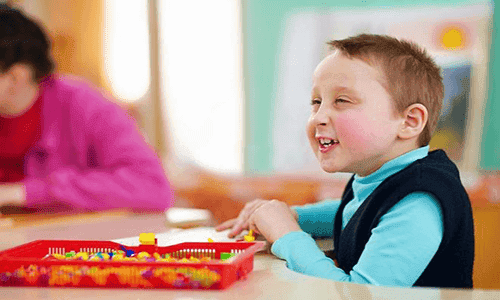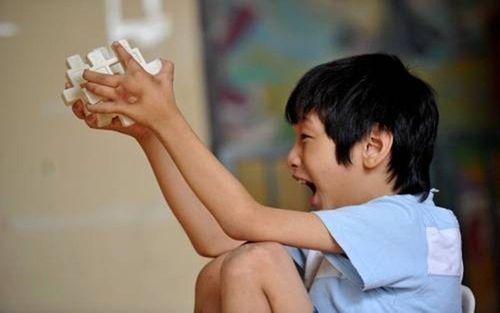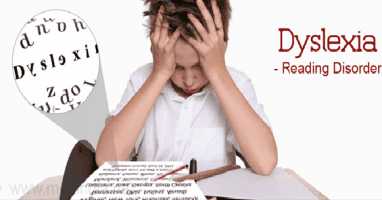This is an automatically translated article.
The article was professionally consulted with Master, Doctor Ngo Thi Oanh - Pediatrician - Department of Pediatrics - Neonatology - Vinmec Ha Long International General Hospital.Developmental delays in children can have a major impact on many aspects of their health, both physical and mental. This can cause major obstacles to young children's perfecting skills, including motor, cognitive, language or vision.
1. What is developmental delay in young children?
A developmental delay in a child occurs when a child falls behind his or her peers in one or more areas emotionally, physically, or mentally. If your child has a developmental delay, early treatment is the best way to help him or her progress and catch up with other children.In fact, there are many forms of developmental delay in infants and young children, including the following problems:
Vision or vision. Language or speech. Movement skills. Thinking skills - perception. Social-emotional skills. Occasionally, significant developmental delays in children can occur in two or more of these areas. This condition is often referred to as comprehensive developmental delay (GDD), which mainly refers to infants and preschool children up to age 5 who show signs of developmental delay lasting at least 6 months.
However, we need to distinguish that developmental delay in children is not the same as developmental disability. Developmental disabilities often include problems such as hearing impairment, cerebral palsy or autism spectrum disorder, which tend to last a lifetime.
Trắc nghiệm: các chỉ số cần chú ý về sự phát triển thể chất của trẻ
Chiều cao, cân nặng của bé ở từng giai đoạn nên là bao nhiêu là bình thường, bao nhiêu là bất thường? Cùng ThS.BS Ma Văn Thấm điểm lại xem bạn đã nắm được các chỉ số phát triển thể chất của bé chưa nhé!The following content is prepared under supervision of Thạc sĩ, Bác sĩ y khoa, Ma Văn Thấm , Nhi , Phòng khám Đa khoa Quốc tế Vinmec Dương Đông(Phú Quốc)
2. Common causes of growth retardation in children
In general, young children will learn to crawl, talk, or go to the bathroom at different speeds, but sometimes some children can reach these developmental milestones much later than others. According to experts, growth retardation in children can stem from some of the following causes:Premature birth. Having genetic conditions such as muscular dystrophy or Down syndrome. Poor hearing and vision. Malnutrition . Physical abuse or inactivity. Pregnant women who use alcohol or drugs during pregnancy. Lack of oxygen during birth.

3. Common types of developmental delay in children
Here are some warning signs of the different types of developmental delays that can occur in babies up to 2 years old.3.1 .Language and speech delays Children with speech and language delays are considered the most common type of developmental delay, which can occur due to a number of main reasons as follows:
Children exposure to more than one language, which can cause mild developmental delays in toddlers, however it does not affect school-age children. Learning Disability. Children are neglected or abused. Have an emotional disorder. Children with hearing loss due to severe middle ear infections, drug use, trauma, or other genetic disorders. Children with autism spectrum disorders, a group of neurological disorders associated with impaired communication as well as cognitive skills and social interaction. You should contact your doctor soon if you notice any signs of a developmental delay in your child or your child is not developing language skills. Also, watch to see if your baby is losing skills that have already been learned. If the child has a delay in language and speech development after 3-4 months of age, the baby usually has the following signs:
Does not respond to loud noises. Begins babbling but does not attempt to imitate sounds (usually after 4 months). Signs of a delay in language development by 7 months of age usually include unresponsiveness to sounds. If after 1 year, your baby cannot use any single words (such as mom) or does not understand words like “no”, “goodbye”, you need to take your baby to see the doctor as soon as possible. In addition, some signs indicate that a child has delayed language development after 2 years of age, including:
Cannot use 2-word phrases without repetition, can only imitate speech. Words cannot be used to convey instant content. 3.2. Vision delays in infants Until 6 months of age, an infant's vision is often blurred, then improves as the baby begins to coordinate vision in both eyes. But sometimes, this doesn't happen or other vision problems appear, causing the child to have a delay in vision development.
The main causes of delayed vision development in children include:
Children with refractive errors, such as farsightedness or nearsightedness . Amblyopia, poor vision in one eye and may be directed outward. Newborns with cataracts (the lens in the baby's eye has a membrane or another genetic problem). Retinopathy in premature infants. Cross-eyed, causing the child's eyes to turn inward, outward, up, or down. When children do not develop or develop vision delays, parents should send their children to early treatment to promptly solve vision and vision problems in children. Depending on the eye problem your child has, the doctor may recommend a number of treatments, such as glasses, contact lenses, an eye patch, or surgery.
You need to contact an ophthalmologist immediately if your child has the following signs of visual retardation at the indicated age, including:
After 3 months of age: The child's eyes do not follow moving objects , does not notice hands after 2 months of age, has trouble moving one or both eyes in all directions, crossed eyes. After 6 months of age: Always have one or both eyes turned outward, inward; constant tears; does not follow near (approximately 30 cm) or distant (180 cm) objects with both eyes. 3.3. Delays in motor skills in children Children with developmental delays in motor skills may be related to gross motor skills (such as crawling or walking), or fine motor skills (such as using fingers or toes). hand to hold spoon). Major causes of motor retardation in children can include:
Ataxia: A defect that impairs muscle coordination Cerebral palsy: A condition that occurs because the brain is damaged before at birth Delayed perception Myopathy: Child has muscle problems Vision problems Spina bifida: An inherited condition that causes partial or complete paralysis of the lower body of a child. To treat motor delays in children, your doctor may recommend some home remedies to encourage your child to be more physically active. In addition, children with developmental delays in this area may also receive physical therapy to address fine motor problems or sensory processing disorders (which often occur when the brain has difficulty receiving and feedback information to the senses).
The following are warning signs of motor skill delays in children according to the specified age, including:
3 – 4 months old: Inability to reach, grasp or hold objects object; difficulty controlling the head; unable to bring objects to mouth (4 months old); does not push down when foot is placed on a firm surface (4 months old) 7 months old: Muscles are stiff, tight, or very soft; head tilt when pulled to a sitting position; having trouble putting objects or anything in the mouth; reach only with one hand or do not actively reach for objects; the body does not rotate in either direction (before 5 months of age); unable to sit up on their own without the help of others (before 6 months of age); unable to bear weight on legs when pulled to standing position After one year of age: Not crawling; unable to stand when supported; pulling on one side of the body when crawling After 2 years of age: Unable to walk (before 18 months of age); failure to develop a full-foot or toe-only walking pattern; Can't push the toy car.

Some common causes of a child's social and emotional retardation include:
Early abandonment by a parent or relative Poor parenting Child cognitive delay Autism spectrum disorder (ASD) causes children to have difficulty socializing and have language problems. Currently, there is no specific cure for these conditions, but doctors can recommend special types of skill- and behavior-oriented therapies for children with social and emotional delays. . In addition, some behavioral problems in children can also be treated with medication.
As with most other types of developmental delay, early treatment can make a big difference to a child's social and emotional skills. Depending on the diagnosis, treatment may also include play therapy or ways to help support parent-child bonding.
Some warning signs of a child's social or emotional retardation by age include:
After 3 months of age: Doesn't smile at people; He didn't notice new faces or looked scared when he saw them. 7 month old baby: Refusing to be cuddled; lack of affection for caregivers or parents; do not like people around; does not laugh or scream (after 6 months of age); dislike or interest in the ouch game (before 8 months of age). After one year of age: Does not reciprocally share sounds, facial expressions, or smiles with others (by 9 months of age); no gestures such as waving, pointing or reaching out. 3.5. Cognitive retardation in children Children with developmental delays in thinking and cognition may be due to one or more of the following causes:
Genetic defects. There are notable health problems before birth. Children are exposed to harmful substances from the outside environment. Abandoned in childhood. A variety of learning disabilities. Exposure to toxins or alcohol before/after birth, including lead poisoning. Have Down syndrome. Autistic syndrome. Educational intervention is considered the mainstay of treatment for cognitive delay in children. It can help your child develop specific cognitive skills. In addition, experts may also recommend play therapy or behavioral therapy to help with cognitive delays in children.
The following are signs of a child's cognitive retardation by age, including:
After 1 year of age: Inability to use body gestures such as waving; not receiving objects or images
After 2 years of age: Unable to recognize the functions of common objects; unable to follow basic instructions from parents or others; unable to imitate the words or actions of others.
In short, developmental delay causes many impacts on children's learning as well as daily activities. Therefore, when noticing signs of developmental delay in children, parents should take their children to see a doctor for timely diagnosis and treatment.
To improve growth retardation in children, parents can supplement their children with supportive products containing lysine, essential micro-minerals and vitamins such as zinc, chromium, selenium, and B vitamins to help meet their full needs. meet the nutritional needs of children. At the same time, these essential vitamins also support digestion, enhance nutrient absorption, help improve anorexia, help children eat better and develop better. Parents can also apply dietary supplements and functional foods derived from nature for easy absorption by the baby. The most important thing is that the improvement of the baby's symptoms must take place over the long term. Combining many types of functional foods at the same time or changing many types in a short time can make the baby's digestive system unable to adapt and completely not good. Therefore, parents must be really persistent with their children and regularly visit the website vimec.com to update useful baby care information.
Please dial HOTLINE for more information or register for an appointment HERE. Download MyVinmec app to make appointments faster and to manage your bookings easily.
Reference source: webmd.com













